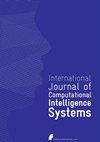Investigating the Economies of Scope and Cost Effectiveness in Manufacturing Companies with Interval Data
IF 2.9
4区 计算机科学
International Journal of Computational Intelligence Systems
Pub Date : 2023-10-18
DOI:10.1007/s44196-023-00340-4
引用次数: 0
Abstract
Abstract The success requirement of managers’ progress, development and performance improvement lie in their attention to product variety and company effectiveness. Economies of scope (ES) examine the advantages of production or the services diversification of a company based on cost versus production by companies that produce the same products or services separately. Data Envelopment Analysis (DEA) is known as a suitable method for evaluating ES and cost effectiveness. DEA models are introduced with certain input and output costs, while many companies and manufacturing industries in different sectors of production and service provision may not have accurate information on available costs and outputs because of calculation errors, old information, and multiple repeated measurements. The estimation DEA for ES and cost effectiveness are sensitive to changes, also some parameters, such as cost and price, are fluctuated. Therefore, it is a requirement to focus on the interval DEA. Our most important goals in this article are: (1) we develop new DEA models to measure the ES and cost effectiveness of decision-making units (DMUs) under data uncertainty. These models will become non-linear and non-convex models; hence, (2) we identify an appropriate range for ES and cost effectiveness of DMUs from the optimistic and pessimistic viewpoints, allowing decision-makers can use the upper and lower limits or their combination depending on the optimistic and pessimistic viewpoints, (3) we apply our developed models to assess the ES and cost-effectiveness performance of 24 institutions, considering data uncertainties that may affect the quality and reliability of the results. (4) The proposed models’ features have been analyzed, and the impact of interval data on cost effectiveness and ES has been evaluated. The application description of the proposed models for determining ES and cost effectiveness shows that a company can exhibit economies of scope without necessarily being Cost Effectiveness.用区间数据研究制造企业的范围经济和成本效益
管理者的进步、发展和绩效提升的成功要求在于重视产品的多样性和公司的有效性。范围经济(ES)根据成本考察公司生产或服务多样化与单独生产相同产品或服务的公司的生产的优势。数据包络分析(DEA)被认为是评估ES和成本效益的合适方法。DEA模型的引入具有一定的投入和产出成本,而不同生产和服务部门的许多公司和制造业可能由于计算错误、旧信息和多次重复测量而无法获得准确的可用成本和产出信息。DEA对ES和成本效益的估计对变化很敏感,成本和价格等参数也有波动。因此,需要重点研究区间DEA。本文最重要的目标是:(1)建立了新的DEA模型来衡量数据不确定性下决策单元(dmu)的ES和成本效益。这些模型将成为非线性和非凸模型;因此,(2)我们从乐观和悲观的观点出发,确定了dmu的ES和成本效益的适当范围,允许决策者根据乐观和悲观的观点使用上限和下限或它们的组合;(3)我们应用我们开发的模型评估了24所院校的ES和成本效益绩效,考虑到数据的不确定性可能影响结果的质量和可靠性。(4)分析了模型的特征,评价了区间数据对成本效益和ES的影响。所提出的用于确定ES和成本效益的模型的应用描述表明,公司可以展示范围经济,而不一定是成本效益。
本文章由计算机程序翻译,如有差异,请以英文原文为准。
求助全文
约1分钟内获得全文
求助全文
来源期刊

International Journal of Computational Intelligence Systems
工程技术-计算机:跨学科应用
自引率
3.40%
发文量
94
期刊介绍:
The International Journal of Computational Intelligence Systems publishes original research on all aspects of applied computational intelligence, especially targeting papers demonstrating the use of techniques and methods originating from computational intelligence theory. The core theories of computational intelligence are fuzzy logic, neural networks, evolutionary computation and probabilistic reasoning. The journal publishes only articles related to the use of computational intelligence and broadly covers the following topics:
-Autonomous reasoning-
Bio-informatics-
Cloud computing-
Condition monitoring-
Data science-
Data mining-
Data visualization-
Decision support systems-
Fault diagnosis-
Intelligent information retrieval-
Human-machine interaction and interfaces-
Image processing-
Internet and networks-
Noise analysis-
Pattern recognition-
Prediction systems-
Power (nuclear) safety systems-
Process and system control-
Real-time systems-
Risk analysis and safety-related issues-
Robotics-
Signal and image processing-
IoT and smart environments-
Systems integration-
System control-
System modelling and optimization-
Telecommunications-
Time series prediction-
Warning systems-
Virtual reality-
Web intelligence-
Deep learning
 求助内容:
求助内容: 应助结果提醒方式:
应助结果提醒方式:


